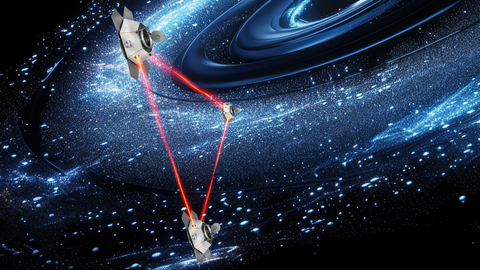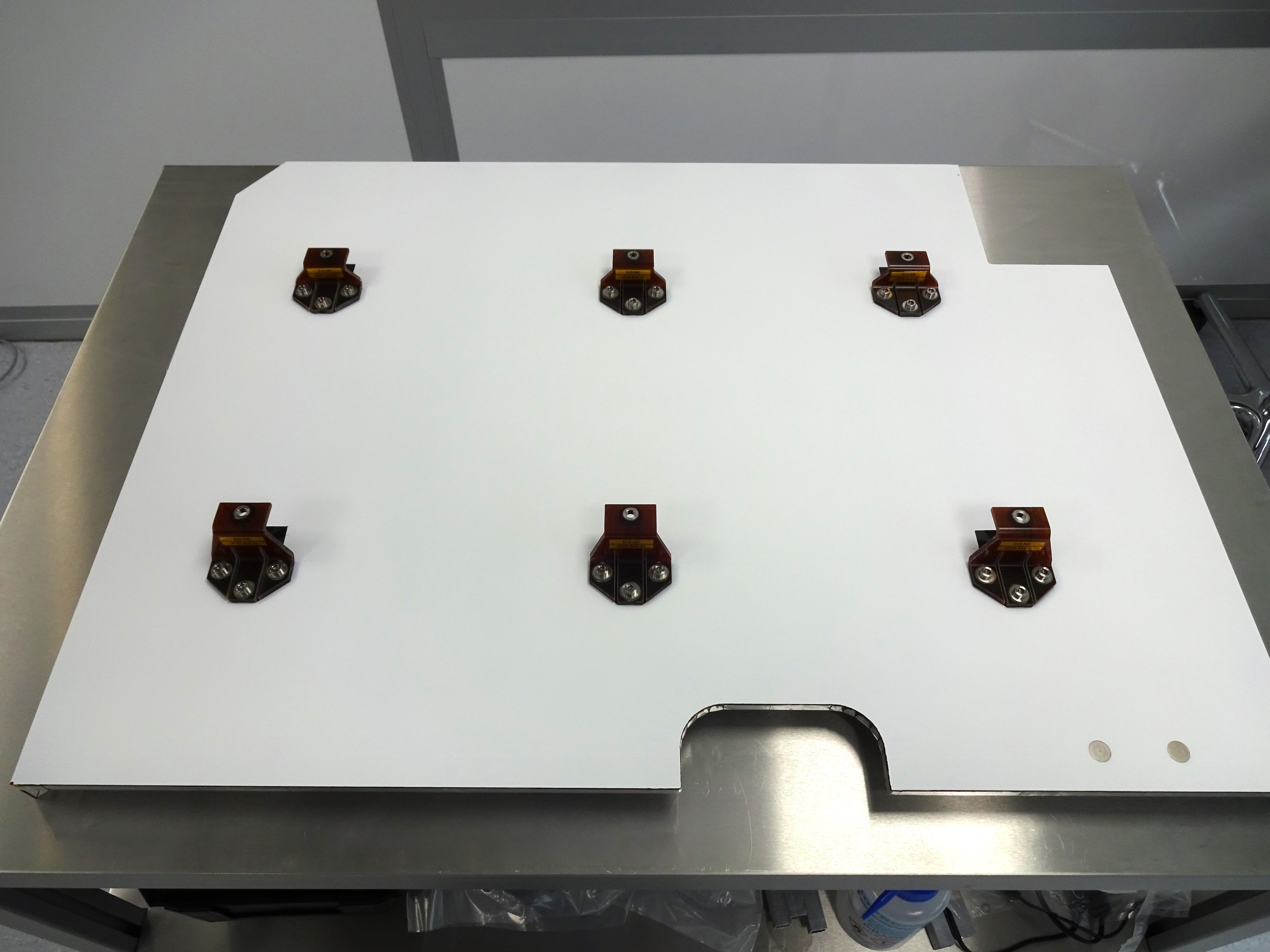HPS Romania and OHB Germany Sign Major Subcontract on Delivery of Radiators for ESA´s Space Mission LISA
October 2025

HPS Romania and OHB Germany Sign Major Subcontract on Delivery of Radiators for ESA´s Space Mission LISA
October 2025
Just a few months after the groundbreaking contract between the European Space Agency (ESA) and OHB for the LISA mission, another milestone has been reached: HPS Romania (HPS-RO) has signed a multimillion-euro contract with OHB Germany to deliver a critical component for one of ESA’s most ambitious science missions to date.
LISA (Laser Interferometer Space Antenna) stands as one of the ESA’s science cornerstone missions, aiming to explore the deep-space phenomena of gravitational waves. These tiny ripples in the fabric of space-time hold answers to some of the most fundamental questions about our universe, since LISA will be the first space-based observatory to detect and measure gravitational waves, offering insights into phenomena like black hole mergers and galactic formation. The mission requires three spacecraft flying in a triangular formation across 2.5 million kilometers, using laser interferometry to detect distortions in space-time with unprecedented precision.
As part of this mission, HPS Romania will supply essential thermal radiators that ensure the spacecraft’s high-performance instruments and electronics remain within optimal temperature ranges by emitting the satellite’s heat via large metal structural panels into open space. Without these radiators, the delicate measurements LISA must take across millions of kilometers in space would be compromised.
This comprehensive contract covers Phases B2 and C/D, spanning a total of several years. It includes the production of advanced, ultra-lightweight radiator systems—one of the most visible and significant hardware contributions ever made by an ESA New Member State industry to a flagship space mission.
“We are deeply proud that Romania, through HPS-RO, is stepping into a frontline role on a global mission of this scale,” said Astrid Draguleanu, COO of HPS Romania. “This contract is proof of what consistent support, national policy, and strategic industrial partnerships can achieve.”
The contract also reflects a remarkable success for ESA and national industrial policies, showcasing how New Member States like Romania (official ESA-member since 22.12.2011) can rise to deliver high-performance, flight-critical products for leading space missions. In just nine years since its founding, HPS Romania — founded in 2016 and backed by technology programs, ESA special initiatives, national investments, own investments and the support and investments of its parent company HPS Germany — has evolved into a key contributor to European space infrastructure.
Over the next two years, HPS Romania will develop mission-specific manufacturing processes to realize an extremely lightweight radiator design tailored for space. This phase will be followed by four years of serial production, supplying radiators for all three LISA satellites: The radiator systems are built using a “built-to-print” approach, delivering around 50 high-performance sandwich panels during Phase C/D. Each panel can measure up to 1.5 by 2.0 meters and contains hundreds of inserts, followed by specialized thermal painting.
This contract is part of HPS-RO’s core product line “Thermal Hardware”, which includes:
In addition, HPS-RO’s broader portfolio supports ESA and commercial missions with:
For actual and potentially new customers, the LISA radiator contract is a strong statement of HPS Romania’s capabilities as cost-efficient supplier for high-end space equipment. For ESA and OHB, it confirms the strategic value of continued cooperation with a highly reliable and innovative partner. And for Romanian institutions and decision-makers, it’s a symbol of the nation’s growing role in cutting-edge space exploration.

